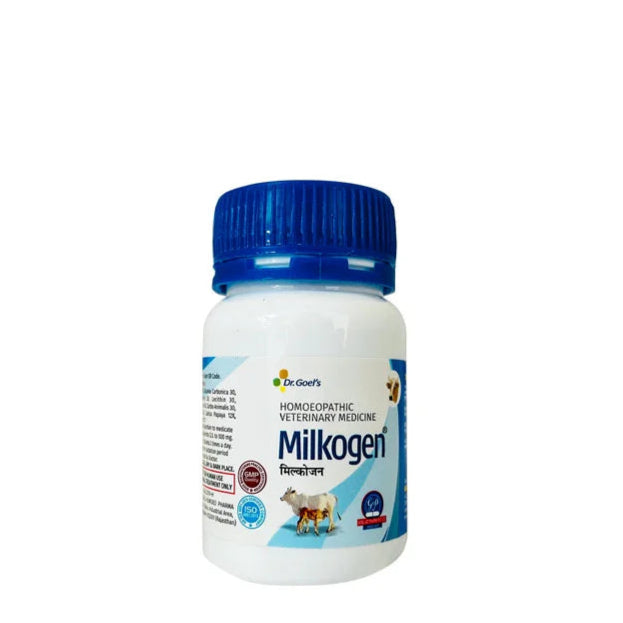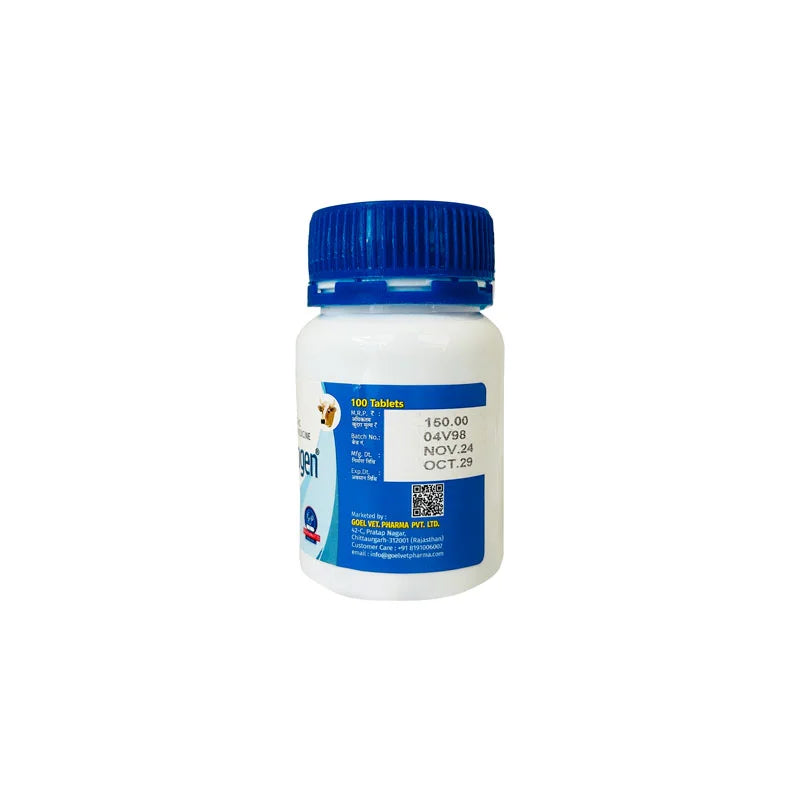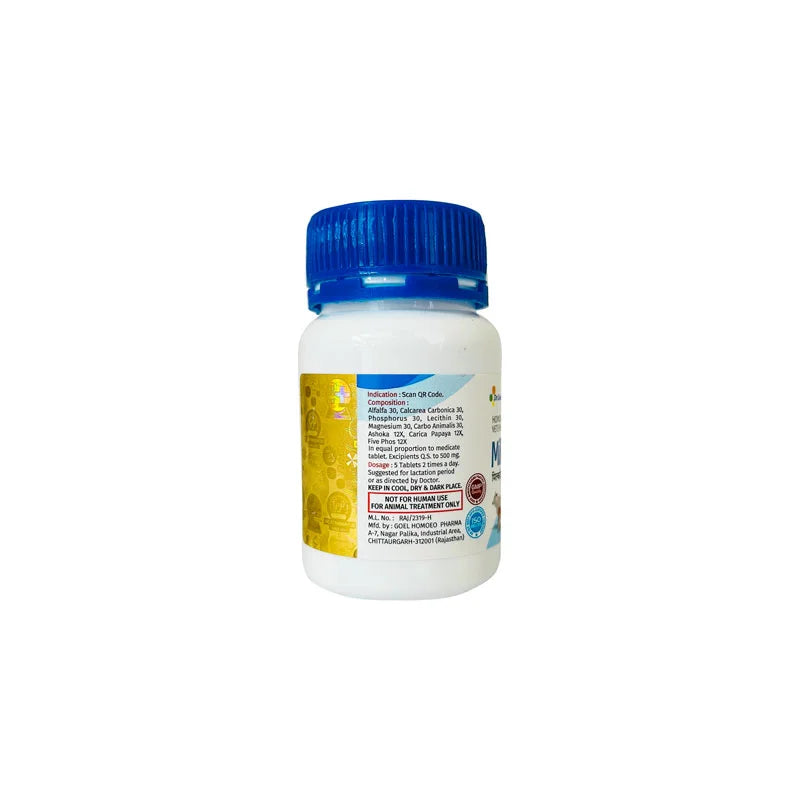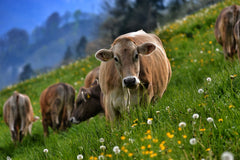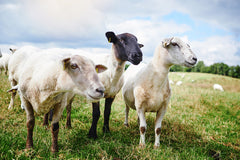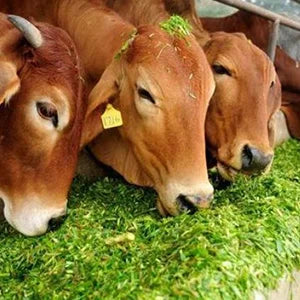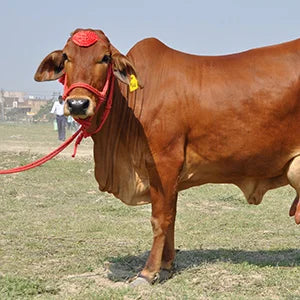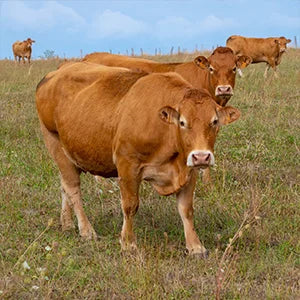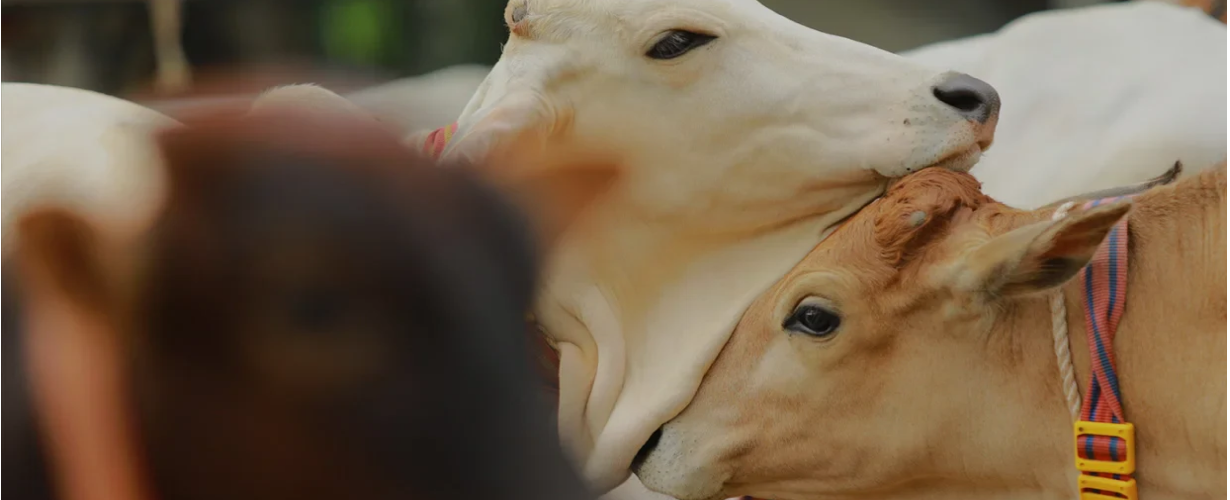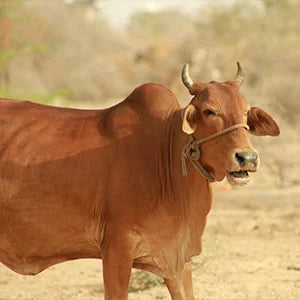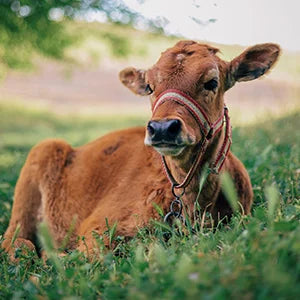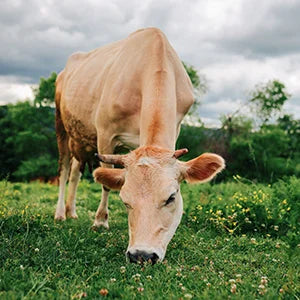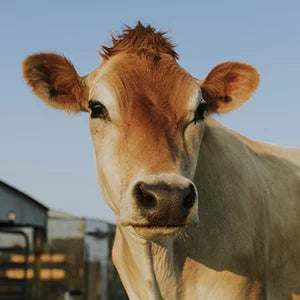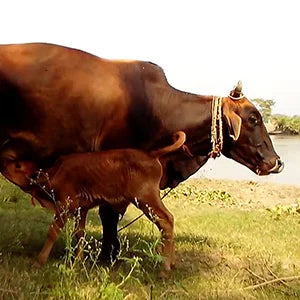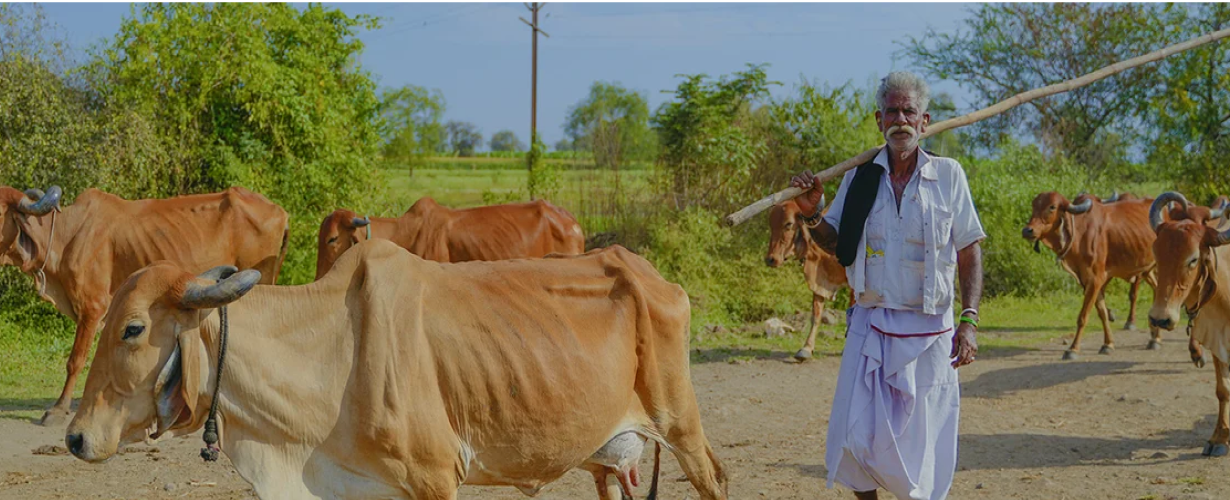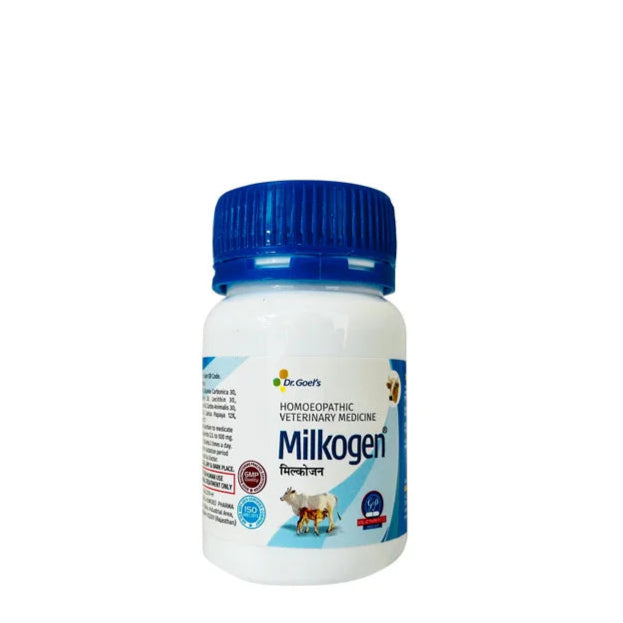Developing milk production in cattle can be due to nutritional deficiencies, health issues like mastitis, environmental stress, milking irregularities, age, or genetic factors. Pinpointing the specific cause is vital to implementing the right remedies and restoring optimal milk output..
Common causes of milk yield in Cattle include:
-
Nutritional Deficiencies
Inadequate nutrition, such as imbalanced diets lacking essential nutrients like proteins, energy, vitamins, and minerals, can significantly impact milk production.
-
Health Issues
Conditions like mastitis, metabolic disorders, reproductive problems, or infections can lead to a decline in milk output.
-
Environmental Stress
Extreme temperatures, overcrowding, sudden changes in routine, or uncomfortable living conditions can cause stress in cattle, affecting their milk production.
-
Management Practices
Inconsistent or improper milking routines, insufficient milking intervals, or neglecting cow comfort and care can also contribute to decreased milk yield.
Tips for Prevention of less milk in Cattle
To prevent milk production issues in cattle, focus on a balanced diet, regular vet check-ups, stress-free living conditions, and meticulous milking hygiene. Consistent monitoring, gentle milking practices, and thoughtful breeding choices contribute to maintaining optimal milk output.
Symptoms of decrease milk in Cattle
-
Reduced Milk Yield
A noticeable decline in the amount of milk produced by the cow over time.
-
Changes in Udder Size or Texture
The udder might appear smaller or softer than usual, indicating a decrease in milk production.
-
Behavioral Changes
Cows might exhibit signs of discomfort or agitation, possibly due to underlying health issues affecting milk production.
-
Poor Body Condition
A decline in milk production can affect the cow's overall health, leading to weight loss or a decrease in body condition score.
-
Health Issues
Cows experiencing decreased milk production might also show signs of illness or conditions like mastitis, metabolic disorders, or reproductive issues.
-
Reduced Suckling or Nursing
In cases of calf nursing, a decrease in milk production might lead to reduced suckling behavior or calf dissatisfaction.
Trusted by Veterinarians
“As a veterinarian, I am thrilled to endorse Dr. Goel Vet Pharma’s homeopathic products for our furry friends. Their commitment to advancing homeopathic veterinary medicine is evident in the exceptional quality of their products. The innovative solutions they provide have significantly enhanced our ability to care for our animal patients, ensuring optimal health outcomes. I highly recommend Dr. Goel Vet Pharma’s products to pet parents for their unwavering dedication to the well-being of pet animals and the invaluable support they offer to the veterinary community.”
– Dr. Sakshi Sharma (B.V.sc. & A.H. M.V.Sc , NET)
Treat your Cattle from milk problem with Dr. Goel’s Milkogen Kit
MILKOGEN KIT contains two Homeopathic Veterinary Medicines, namely MILKOGEN TABLET, and LACTUGO-M. On the first day, you have to start with LACTUGO-M, to be given 10 ml 3 times a day on Roti, Bread, or with soft jaggery water. From the next day onwards, please give MILKOGEN TABLETS, to be given 5 tablets two times a day with Roti, Bread, or with soft jaggary.LACTUGO-M is an excellent Homeopathic Veterinary Medicine used in Cows and Buffaloes for letting down milk Naturally. No need to use hormonal treatment.MILKOGEN is an excellent Homeopathic Veterinary Medicine used in Cows and Buffaloes to increase milk yield naturally. It is a natural replacer of oxytocin hormone without any contraindications or side effects but with a definite increase in the milk yield. It increases the milk quantity and fat percentage of the milk to the full potential of an animal.
